Shopify vs. Custom Store for Dropshipping – What’s Better & Why?
Are you planning to start a dropshipping business, but confused about whether to use Shopify vs Own Website store? With the rapidly growing e-commerce industry, it’s important to make the right choice for your business.
Both Shopify and custom stores have their own advantages and disadvantages. Thus, it’s important to evaluate them based on your business needs.
In this article, we will compare Shopify vs Custom Store for dropshipping. Plus, I will help you decide which one is better for your dropshipping business in 2024. Let’s dive in!


Table of Contents
Shopify vs Own Website: Which Way to Build Your Ecommerce Website?
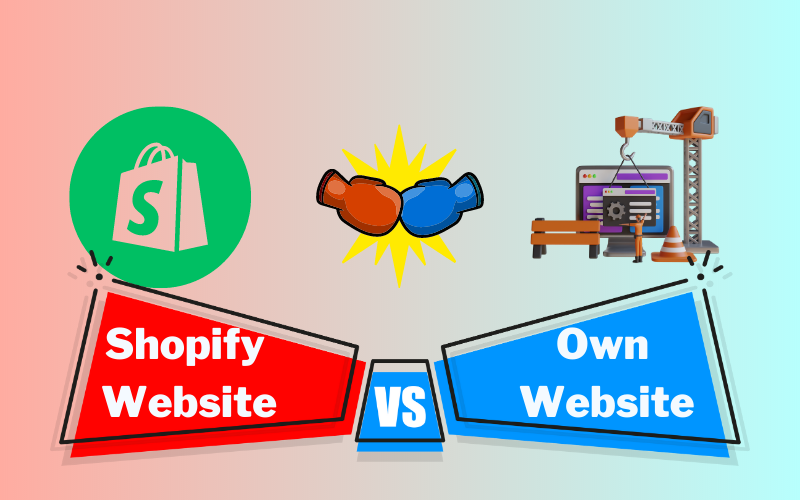
As someone who has been in the e-commerce industry for quite some time now, I’ve learned that choosing between Shopify and building your own website can be a daunting task.
While Shopify is a popular e-commerce platform, building your own website gives you the freedom to customize your website the way you want.
In this article, I’ll be sharing my thoughts on Shopify vs Own Website and which way is better for building an e-commerce website.
What Are The Differences Between Shopify Vs Own Website?
As someone who has experience in the world of eCommerce and dropshipping, I am often asked about the differences between using Shopify and building your own website. The truth is that each approach has its own unique set of pros and cons that should be carefully considered before making a decision.
Shopify and building your own Website differ in many ways. Shopify requires you to be more hands-on, while Custom Site is more hands-off.
What does that mean?
When using Shopify, you need to select a theme, whereas Custom Site can be created from scratch.
Also, depending on the price plan you choose, Shopify can be relatively inexpensive compared to Custom Site, which can be quite expensive.
In fact, one of the major factors that differentiates Shopify from building your own website is cost. While Shopify charges a monthly fee that varies based on the plan you choose, building your own website can be significantly more expensive up front, especially if you need to hire a designer or developer.
Moreover, a website that is custom-designed may have a greater chance of standing out, especially when working with an experienced individual or team. Hence, they can provide useful insights into search engine optimization and branding.
Plus, if you are building a custom store from scratch, you probably have some good technical skills, since you need them.
👉Read about How to Build an E-commerce Website from Scratch – Our Process.
But, are there any similarities between Shopify vs Own Website?
Despite the differences, there are a few similarities between Shopify vs Own Website. Both offer marketing tools, upsells and cross-sells, secure shopping carts, and other website features like blogs.
👉 Read about DTC Marketing: Proven Strategies & Examples For Dropshippers.
In my experience, I find that Shopify is better suited for those who are just starting out with their online business or those who prefer a more user-friendly approach.
However, for those who have the technical knowledge and resources to build their own custom website, it can offer more creative control and flexibility. Now, let’s dive into the Shopify vs custom store comparison.
Shopify Vs. Your Own Store For Dropshipping? – How To Decide What’s Right For You?
Are you stuck in a dropshipping dilemma? Choosing between Shopify vs own website can leave you feeling overwhelmed.
Fear not, as we dive into the key factors to weigh up in this epic battle of eCommerce options. Buckle up and let’s explore the pros and cons together!
➡ The Key Factors In Comparing Shopify & Custom-built Websites For You
As someone who’s been running an online business for several years now, I’ve had a chance to explore different platforms for selling. Shopify vs Custom stores are two options that come to mind when it comes to dropshipping. Here are some key factors to consider when comparing the two.
🔸 Setup Speed
I can confidently say that setup speed is one of the most significant differences between the two options. So, let’s see the setup differences for Shopify vs Custom Store!
🔹 Shopify Setup
➡ Setting up a Shopify account is incredibly fast and straightforward. In just a few clicks, you will find yourself in the account creation process. Here you can start uploading products and setting up your store’s details right away. So, the Setup process on Shopify is an easy breeze.
- Step 1 – Sign up for an account with Shopify by going to their website and clicking on the “Get Started” button.👇

- Step 2 – Choose a pricing plan that fits your business needs and budget.
- Step 3 – Customize your store’s design by selecting a theme from the Shopify Theme Store or creating a custom design using Shopify’s built-in tools. 👇
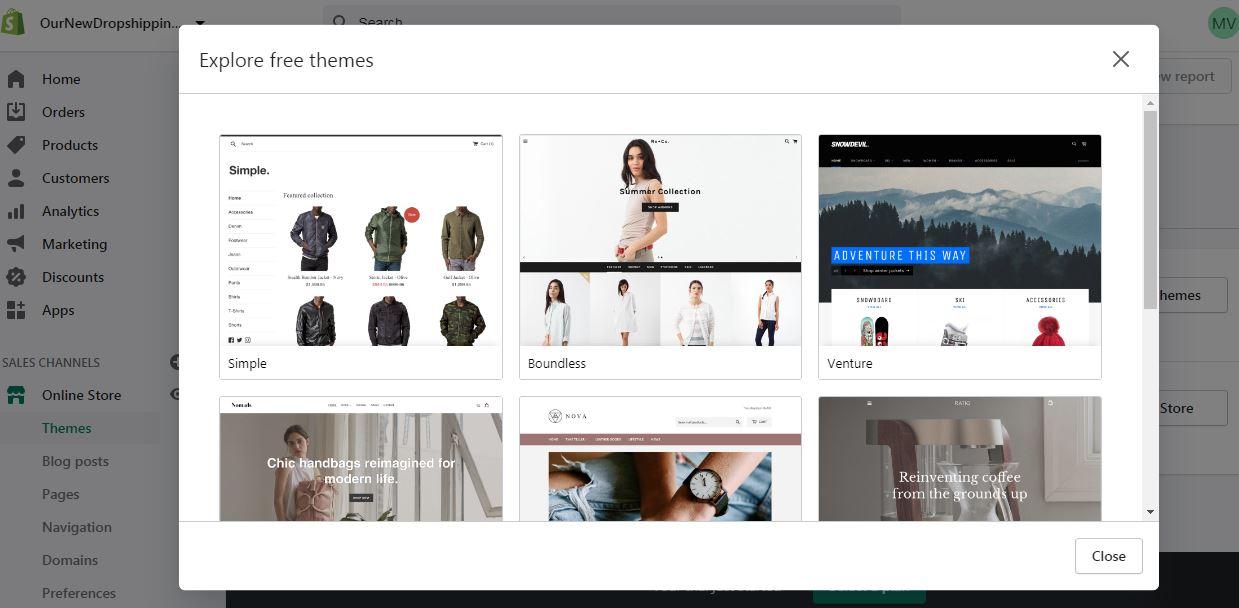
- Step 4 – Add your products to your store by uploading product images, descriptions, and pricing information.👇
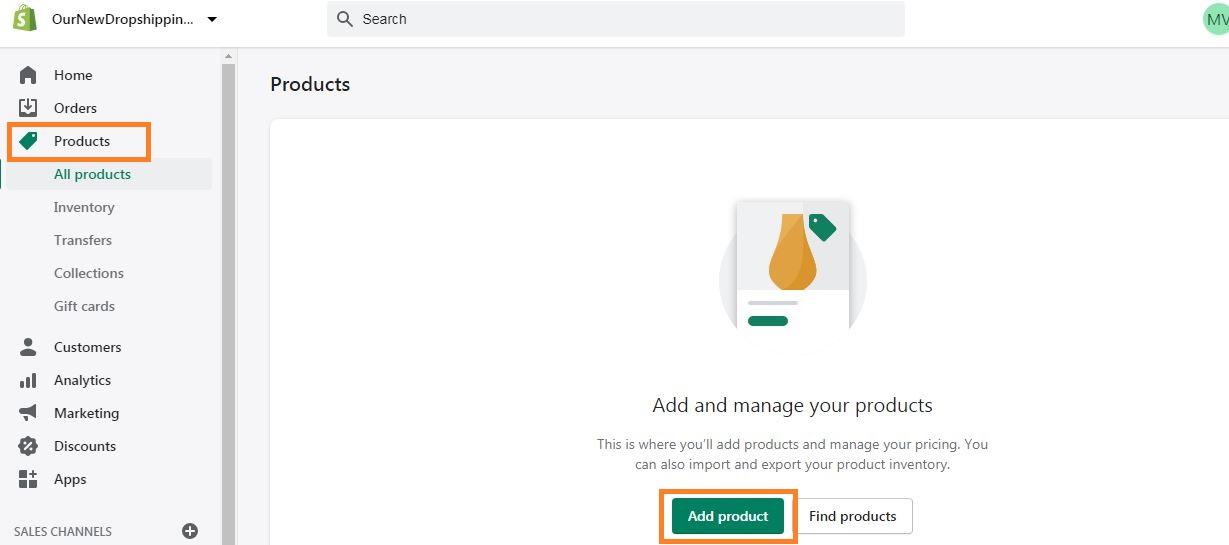
- Step 5 – Set up payment and shipping options by configuring your payment gateway and shipping settings.👇
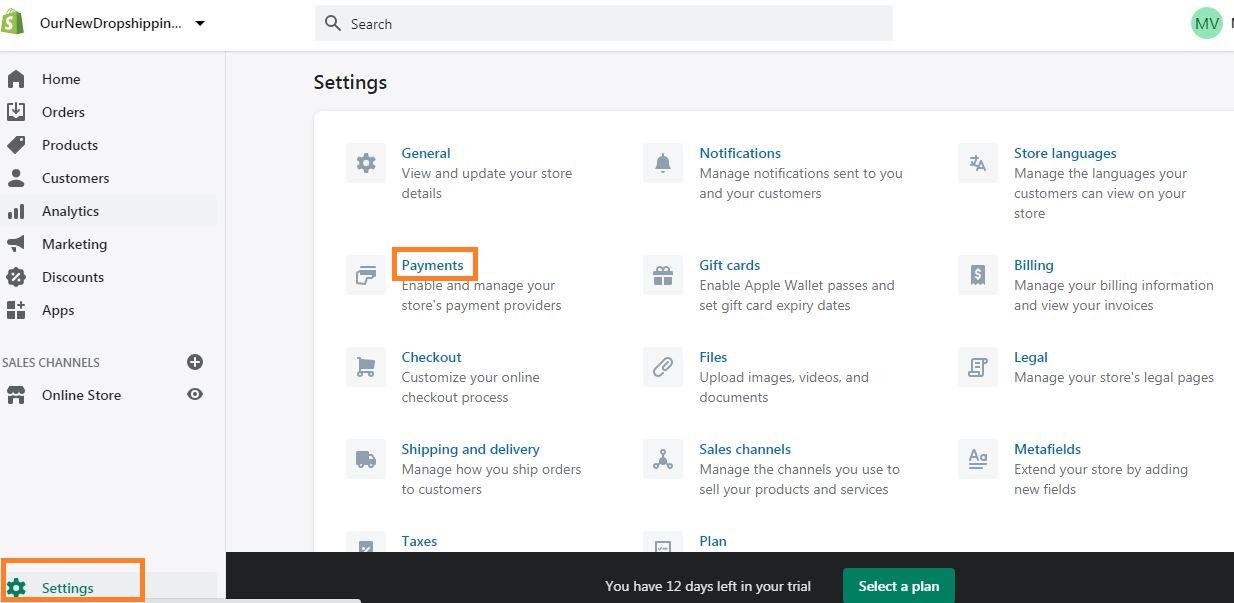
- Step 6 – Configure your store’s settings, including taxes, checkout options, and customer accounts.
- Step 7 – Launch your store by selecting a domain name and publishing your website.
👉 Learn How To Set Up Your First Store On Shopify [For Dropshipping Beginners].
Plus, Shopify’s user-friendly interface means that even if you’re not technically skilled, you can still get started with ease.
🔹 Custom Website Setup
On the other hand, setting up a custom-built website can be a daunting task, particularly for those without technical skills.
Thus, finding a reliable web host, integrating an ecommerce platform, and figuring out payment gateway processes can take a considerable amount of time. Even though custom-built websites offer more flexibility. However, this flexibility comes with added complexity.
For example, one of my favorite software for building a website is WordPress. It is a free and open-source content management system that allows users to create and manage websites easily. It is the most popular website builder platform in the world, powering over 39% of all websites.👇

This process can be time-consuming and complicated, especially if you’re not familiar with coding or website design.
💡 Tip: Read about WoodMart WordPress Theme Review: Is WoodMart Good for Dropshipping?
🔸 Costs
When it comes to running an online business, costs are a major factor to consider.
Therefore, building and maintaining your own website can be expensive, with costs associated with domain registration, website hosting, SSL certificates, learning courses, training, theme costs, templates, custom site design, eCommerce functionality, and email marketing software.
For example, if you choose WordPress for building a custom website, the monthly price range starts from $0 to $70/month. However, building the website with the web host and all other expenses can go high as $100 to $500 to $3000, to even as high as $30,000 or more.
For example, a basic 5-page website, consisting of the home, blog, contact, about, and pricing pages, can cost between $500 to $1,500 for the initial setup and design as a one-time fee.
On the other hand, Shopify offers subscription-based pricing plans that include all of these features in an all-in-one package. While the upfront costs of these plans may seem higher, they can ultimately be more cost-effective in the long run.👇
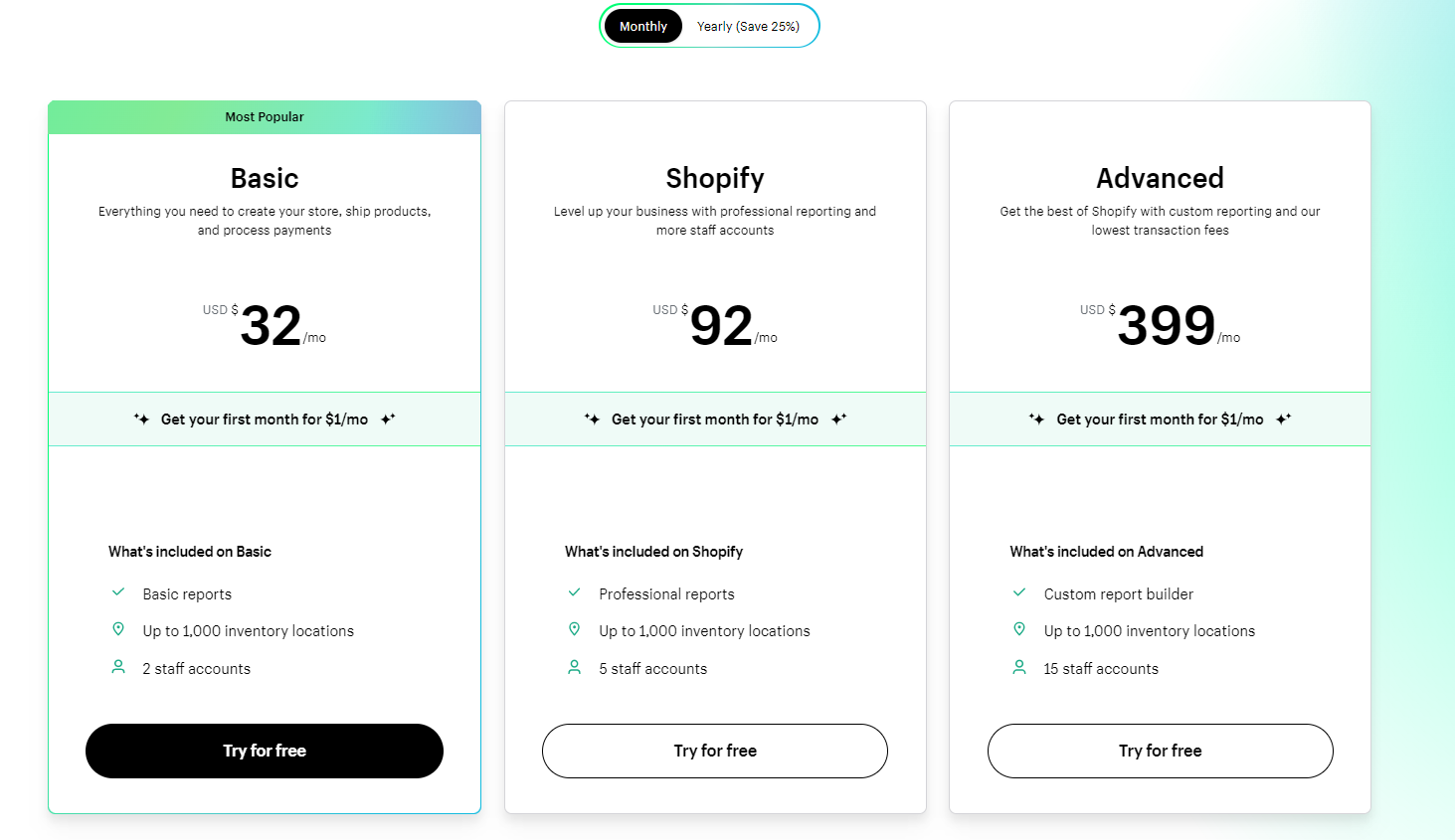
With Shopify’s Basic plan starting at just $32 per month, many of these costs are included. Shopify also offers its own payment gateway, reducing the need for third-party providers and transaction fees.
Plus, with Shopify, all updates and bug fixes are handled automatically, eliminating the need for extensive technical knowledge or coding skills. Plus, Shopify offers built-in email marketing and eCommerce functionality, saving you money on additional software and services.
👉 Read about the Shopify Pricing Plans: What’s The Cost Of Dropshipping With Shopify?
🔸 Ease of Use
After all, as a business owner, I don’t want to waste my time and energy on a platform that requires extensive technical knowledge or coding skills. That’s why convenience plays a huge role in my choice of platform for my dropshipping business.
In my experience, Shopify appears to be the most convenient platform to use, especially for beginners. Its user-friendly interface and range of features make it easy to set up an online store and start selling products right away.
Even if you have no prior experience in eCommerce, Shopify’s drag-and-drop interface makes it easy to create a professional-looking online store.
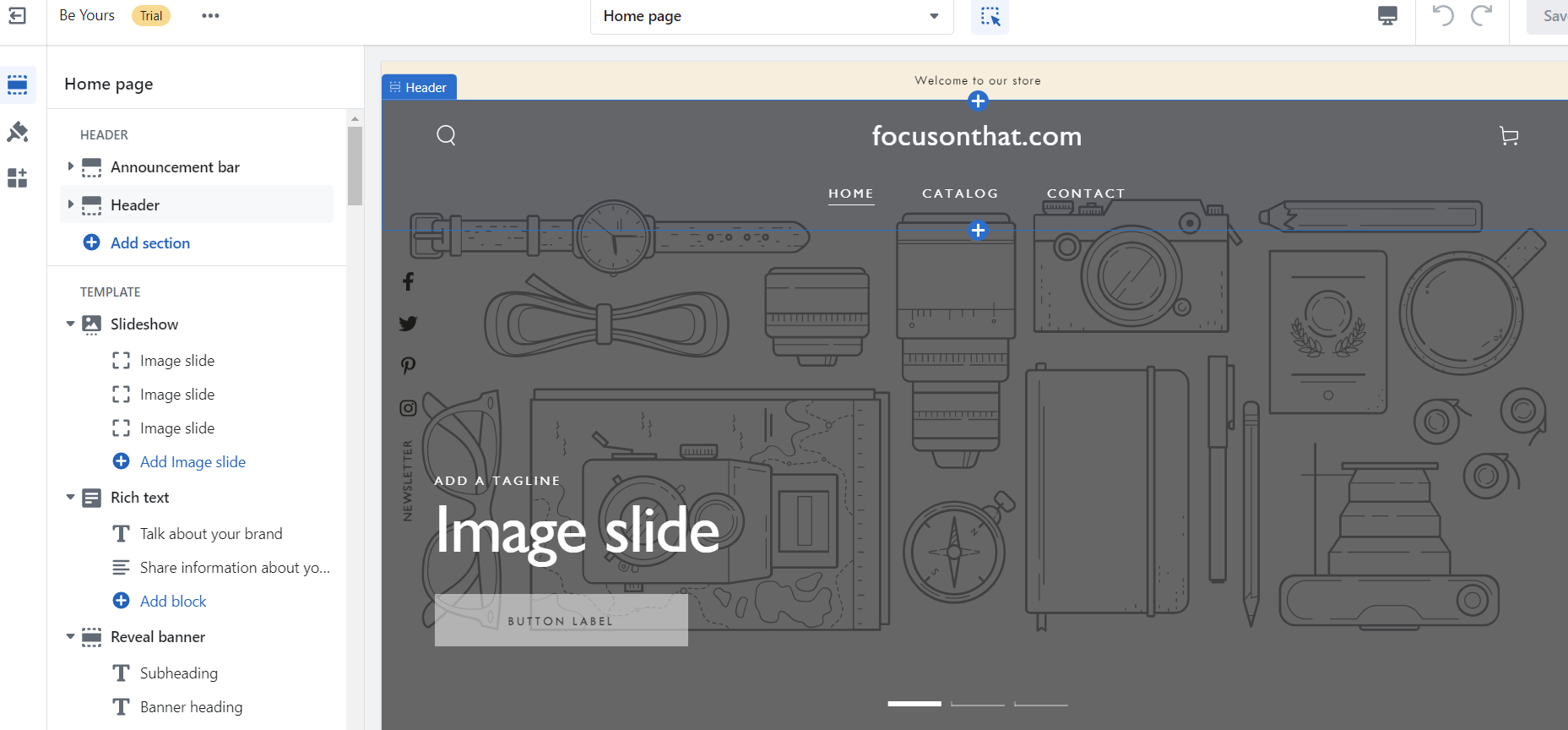
👉 Learn How To Change Themes On Shopify: A Guide For Dropshippers.
On the other hand, Woocommerce may require more hands in managing it. While it’s certainly a powerful eCommerce platform, it can be quite challenging for beginners to use. This is partly due to the fact that it’s a plugin for WordPress, so you’ll need to be familiar with both platforms to make it work.
Of course, there are Custom eCommerce development platforms that allow for more customization options. However, developers often prefer different technologies to make such a platform fully customized, which can lead to more complexity and a steeper learning curve for beginners.
🔸 Webpage Design & Themes
When it comes to webpage design and themes, there’s a noticeable difference between Shopify and custom-built websites.
Firstly, Shopify offers a wide range of responsive and mobile-friendly web layouts that are specifically designed for eCommerce purposes.

👉 Check out the 11 Best Free Shopify Themes For Dropshipping Stores.
On the other hand, custom-built websites require more time and effort to find the optimal theme and will require a reliable platform and software to build the store. However, customized websites provide unlimited space for customization and are more flexible than Shopify.
If you choose to go with Shopify, you can browse through their various themes on their website or the Shopify Marketplace. The themes on Shopify range from free to paid, and the cost of the paid ones varies from $180 to $360.
When it comes to custom-built websites, there are plenty of platforms to find themes such as ThemeForest or Creative Market. For example, on ThemeForest prices can vary widely, ranging from under $29 to over $1000.
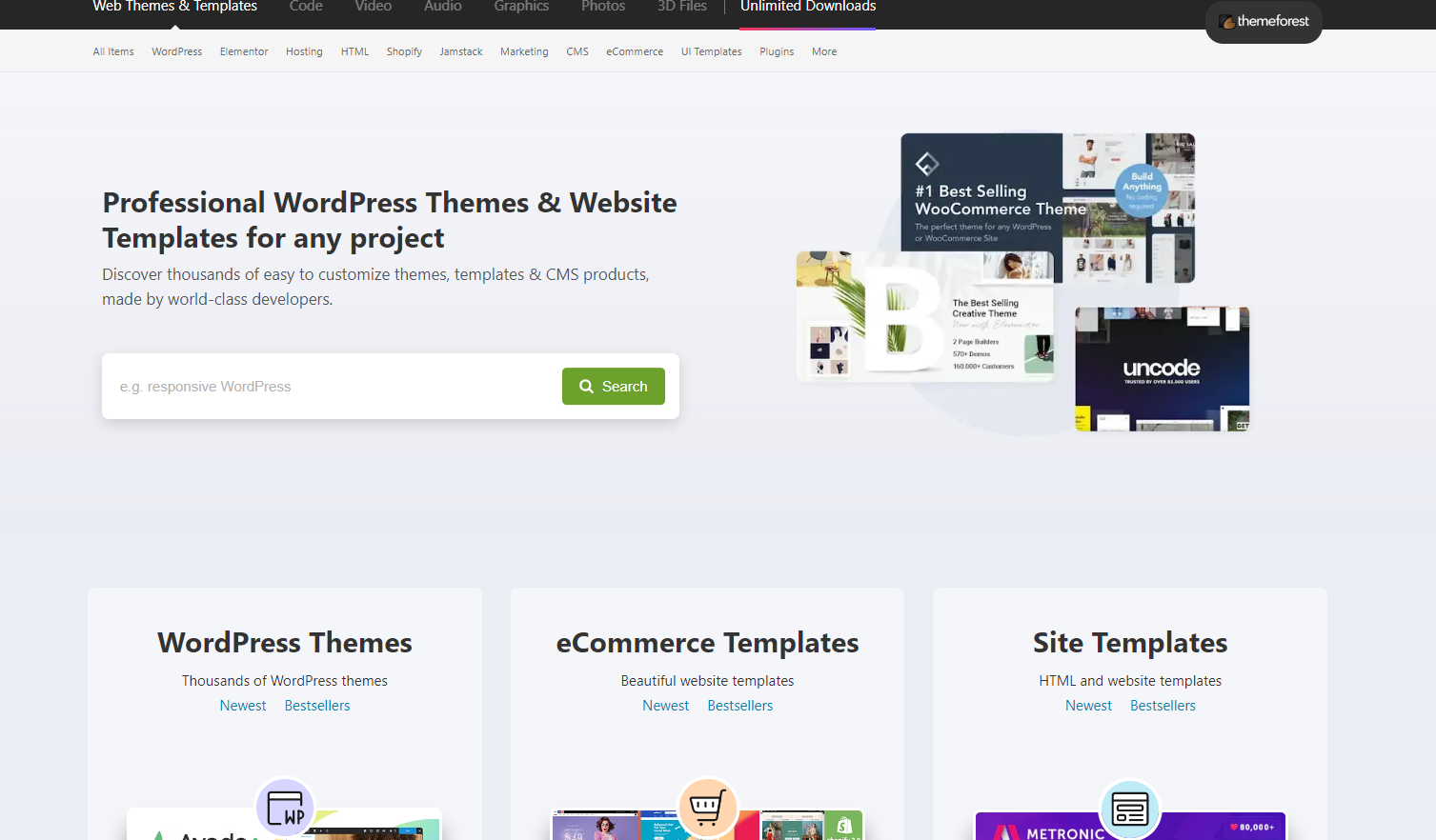
Ultimately, the decision to go with Shopify or a custom-built website comes down to individual needs and preferences.
🔸 eCommerce features
When it comes to eCommerce, both Shopify and custom-built websites provide different features, and choosing between the two can be overwhelming.
Firstly, Shopify is an all-in-one eCommerce platform, and its wide range of features is impressive. With Shopify, you get:
- Online Store Builder
- Payment Gateway Integration
- Inventory Management
- Shipping Options
- Marketing and SEO Tools
- Customer Management
- Analytics and Reports
- Customer Support
Plus, you get all this without having to install additional plugins/extensions.
On the other hand, custom-built websites may require additional plugins/extensions to acquire these eCommerce features, depending on the selected CMS. This can take up a significant amount of time and resources, which might hinder your online business.
However, custom-built websites possess one significant advantage over Shopify — functionality.
Hence, custom-built websites provide unlimited space for customization and are more flexible than Shopify, which might be essential for businesses that require a tailor-made solution for their eCommerce operations.
To sum this up, choosing between Shopify and custom-built websites depends on your business’s needs and the amount of time and resources you are willing to invest in your online presence.
🔸 Third-party services
When it comes to third-party services, Shopify and custom-built websites differ in several ways.
Firstly, Shopify has an extensive library of over 8,000 third-party applications available in the Shopify App Store that are easy to find and install. This makes it effortless to find and integrate the right tools you need to run your online store.

In addition, with Shopify, you can link multiple sales channels, including both online and offline selling. This allows you to streamline your sales processes and increase your online presence. Moreover, Shopify boasts a team of Shopify Experts who can help you solve any technical or marketing difficulties you might face along the way.
On the other hand, when building a custom website, it may take more time and effort to research and integrate the right third-party services. Each platform may require different plugins/extensions that may need to be coded into the HTML. This can take up a significant amount of time, depending on your technical skills.
It’s essential to consider the needs of your business when choosing between these options. While Shopify has an advantage in terms of third-party services due to its extensive library and easy integration, a custom-built website can provide more flexibility when it comes to third-party services.
🔸 Security
When choosing between Shopify vs Custom store, security should be a crucial factor.
➡ Shopify manages security measures within its platform, including the implementation of Secure Sockets Layer (SSL) technology. SSL technology encrypts all customer data during online transactions, which prevents eavesdropping on sensitive information. This technology is an effective method of providing reliable security for online transactions.
However, in self-hosted platforms like WooCommerce, security measures are the responsibility of the developers. These developers must install and manage third-party plugins to ensure security measures are in place. Due to the varying reliability of each plugin, security can become a concern. It is up to the developers to stay abreast of potential vulnerabilities and to adopt new solutions quickly.
➡ In custom-built websites, security measures are also the responsibility of the developers to implement. This process often requires a thorough understanding of security best practices and coding skills. As a result, the security of the platform depends entirely on the developers’ technical skills and experience. It can be more challenging to ensure that transactions are protected from fraud or other online scams.
🔸 Support
As a dropshipper, having reliable support is crucial to ensure the smooth operations of your online business. When it comes to choosing between Shopify and a custom-built website, support is a significant factor to consider.
In my opinion, Shopify stands out in terms of support. With 24/7 customer service available through various channels, including phone, email, and live chat, along with a vast library of help articles, tutorials, and forums, Shopify provides excellent assistance to its users.
On the other hand, for custom-built websites, the quality of support may vary depending on the skill and experience of the developer. Hence, it can be challenging to find a reliable developer who can provide the necessary support to ensure the website’s smooth operation.
Conclusion: Which Is Better?
After researching and analyzing both options, Shopify vs Own Website, I believe Shopify is the better option for dropshipping.
Firstly, Shopify has an eCommerce platform that enables online store owners to sell their products online. This wide range of eCommerce features ensures that any online business owner can use Shopify to develop and run their business online. Moreover, third-party apps work seamlessly with Shopify, further ensuring the growth and success of online stores.
Custom-built websites, on the other hand, require technical knowledge and coding skills to create and maintain. Also, the quality of support varies based on the partner you choose. Moreover, it can be difficult to find a reliable partner to help with the smooth operation of the website.
In my opinion, Shopify is the better option for dropshipping. While custom-built websites offer flexibility, they require coding skills and technical knowledge.













![The Top 21 3PL Companies Compared [2024 List & Guide]](https://images.weserv.nl/?url=https://prod-dropshipping-s3.s3.fr-par.scw.cloud/2024/03/Frame-3922469.jpg&w=420&q=90&output=webp)